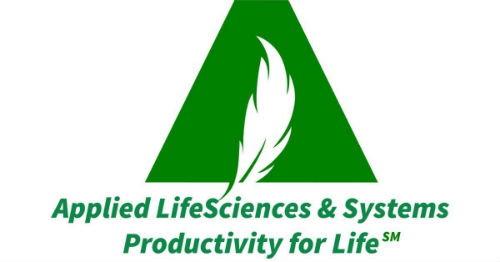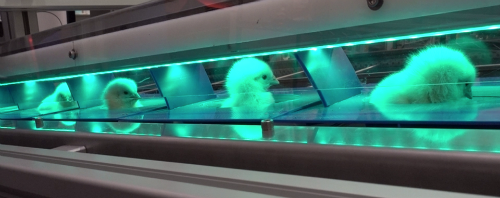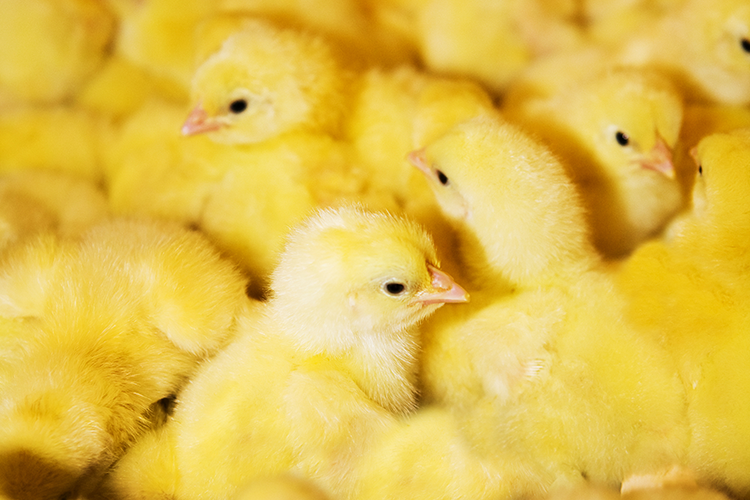
Financing Will Accelerate Development Of Game-changing Poultry Vaccination Technology

Raleigh-based Applied LifeSciences & Systems (ALSS) closed an $8 million Series A equity financing this month to accelerate development of its innovative technologies for individually vaccinating chickens at their time of hatching to reduce the need for antibiotics later.
The company integrates high-speed imaging, feature recognition, artificial intelligence, robotics and microfluidics in an automated system that can individually vaccinate up to 100,000 chicks per hour against diseases such as coccidiosis, infectious bronchitis and Newcastle.
“We are individually delivering the vaccine right to the chicks after they hatch, so they grow up on the farm healthy with reduced need antibiotics and other food additives, said founder and CEO Ramin Karimpour in an interview with the North Carolina Biotechnology Center. “It’s a very healthy way of growing chickens.”

When antibiotics are removed from the production process, animals not vaccinated or not fully vaccinated are susceptible to infections leading to sickness and death. The industry trend toward antibiotic-free production has led to producers' demands for novel solutions to improve health standards and vaccination procedures allowing for similar level of productivity in the absence of antibiotics and other chemicals.
Not a solution looking for a problem

This recent demand for antibiotic-free protein, driven by consumers and regulatory changes, makes the ALSS system highly interesting to farmers, who are already working with the company, Karimpour said. “Globally, there are about 73 billion chickens, so it would be impossible to individually vaccinate them at a reasonable cost,” he said. “We’re not a solution looking for a problem. There is a tremendous problem out there we are solving. Quite a few poultry producers are cooperating with us.”
He added, “We have our own lab and prototypes for vaccine delivery, as well as relationships with North Carolina State University. All chick studies are performed in conjunction and with support of NCSU,” Karimpour said.
Originally founded in 2015, the company reincorporated in December 2018. It raised about $3.1 million from National Science Foundation SBIR and the Foundation for Food and Agriculture (FFAR) grants, and support from Merck Animal Health, which led the Series A round with Mountain Group Partners with participation from Raleigh early-stage investor, Oval Park Capital.
ALSS technology complement’s Merck’s portfolio
"Merck Animal Health seeks to identify and invest in companies with early-stage technologies, devices and solutions with the potential to augment and complement our own portfolio of vaccines and pharmaceutical products to improve animal health, welfare and performance," said Stephen Murray., head of the Merck Animal Health Ventures team, in the financing announcement.
"Leveraging Merck Animal Health's knowledge of poultry vaccination processes, our investment with ALSS will enable the development of its innovative technology that has the potential to significantly increase vaccination rates and enhance poultry production for our customers."

Formerly head of engineering and applied research at Embrex/Zoetis, Karimpour said he and colleagues came up with the idea for ALSS to meet the needs they saw customers facing to improve their sustainability in an antibiotic-free environment. Thanks to grants and partnering with Merck, the company created a working prototype of the system and used that to close the Series A funding.
The company’s website suggests the chick vaccination technology is just its initial product as it works to improve animal health and productivity in markets that also include livestock and aquaculture.
Currently headquartered in Raleigh, ALSS is looking for a new, larger facility in the greater Raleigh-Durham area to move into by June. The company currently has 11 employees and expects to expand to 20 by the end of the year. Karimpour said the company will seek another round of financing in late 2020 or 2021 and hopes to bring the technology to market by mid-2021.
